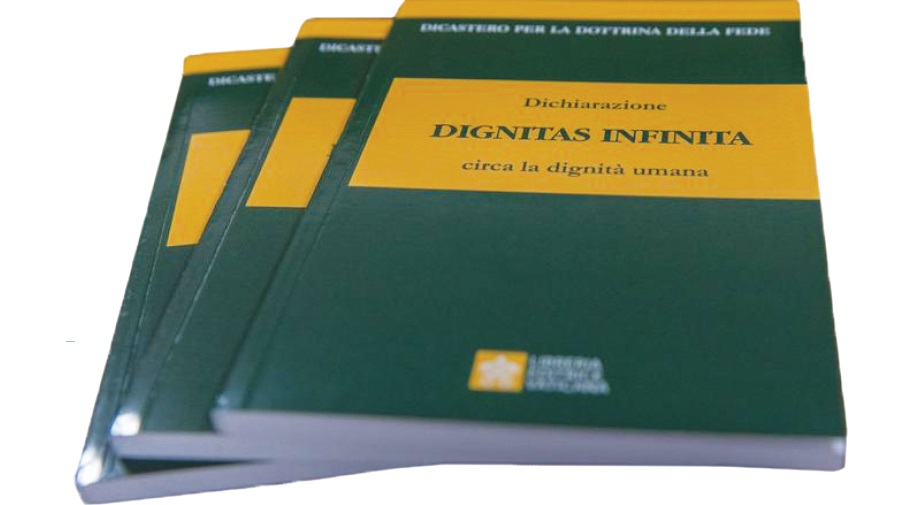Document highlights Pope’s unique approach to human dignity
The Vatican’s new document on threats to human dignity mostly reaffirms already stated Church teaching, but moral theologian Fr Alain Thomasset says it also includes the unique contribution of Pope Francis especially regarding “attacks against human dignity in the tragedy of poverty, the situation
Apr 19, 2024

The Vatican’s new document on threats to human dignity mostly reaffirms already stated Church teaching, but moral theologian Fr Alain Thomasset says it also includes the unique contribution of Pope Francis especially regarding “attacks against human dignity in the tragedy of poverty, the situation of migrants, violence against women, human trafficking, and war”.
Fr Thomasset detailed the significance of Dignitas Infinita (pic) in an interview with La Croix’s Marguerite de Lasa. The Jesuit priest, who teaches at the Loyola Faculty of Theology in Paris, highlighted that while the document reiterates much of the Church’s longstanding teachings, it introduces fresh perspectives particularly emphasised by Pope Francis.
According to Fr Thomasset, Dignitas Infinita primarily revisits themes from Vatican II, underscoring human dignity as a fundamental ethical principle, the cornerstone of human rights, and a requisite for just and peaceful societies. However, the document breaks new ground by providing clarity on the different meanings of “dignity,” which aims to reduce misunderstandings about its violations.
Pope Francis’ influence is notably evident in the document’s focus on contemporary issues affecting human dignity, including poverty, migration, violence against women, human trafficking, and war. These topics, according to Fr Thomasset, were specifically requested by the Pope to be included and are treated as priorities within the document.
The theologian explained the need to reaffirm the “infinite”, “inalienable”, and “unconditional” aspects of human dignity, pointing out that dignity is often threatened in modern contexts. This includes discrimination against the disabled, elderly, and other vulnerable groups, making it imperative to recognise that dignity is inherent to life, not contingent upon abilities or appearances.
Fr Thomasset also noted that Dignitas Iinfinita addresses new ethical dilemmas arising from digital technologies, gender identity, and evolving legislation on individual rights. These issues challenge traditional notions of human dignity and call for a deeper understanding of its relational dimension, emphasising service to others and the common good.
Moreover, the document sheds light on seldom-discussed topics like digital violence, which Fr Thomasset believes warrants further theological study due to its impact on human relationships and self-perception. He also expressed surprise at the document’s scant coverage of artificial intelligence and ecology, areas he feels are increasingly relevant.
On the treatment of abuse within the Church, Fr Thomasset finds the document’s inclusion significant, even if brief. It acknowledges the lifelong impact of abuse on victims, shifting focus from the actions of the perpetrator to the experiences of the victims — a necessary perspective that highlights the Church's evolving understanding of dignity violations.
Overall, Dignitas Infinita seems poised to influence future doctrinal developments and theological discussions, encouraging a reevaluation of ethics in light of contemporary challenges to human dignity. The document’s emphasis on relational freedom could also inspire new approaches to sexual and family ethics, aiming to foster respect and justice in personal relationships. -- LCI (https://international.la-croix.com)







Total Comments:0